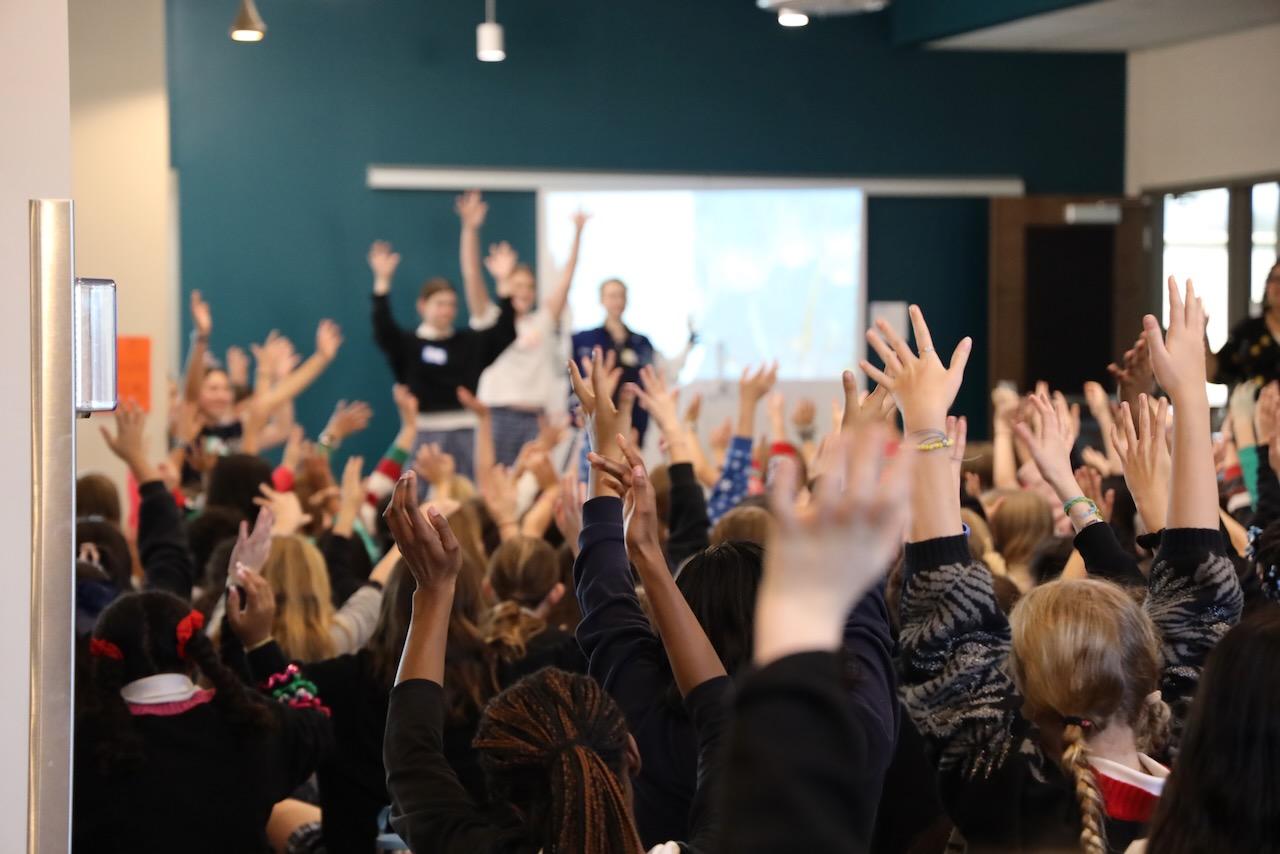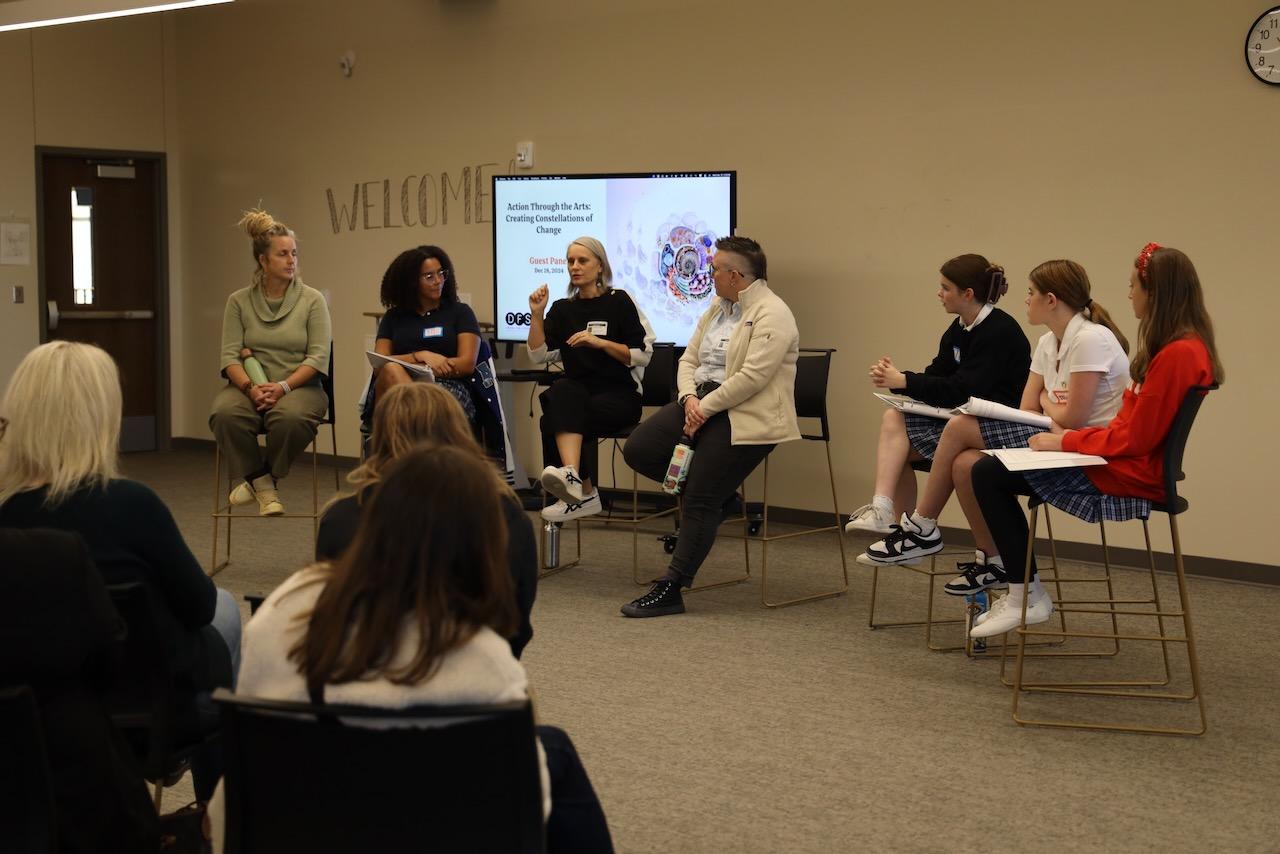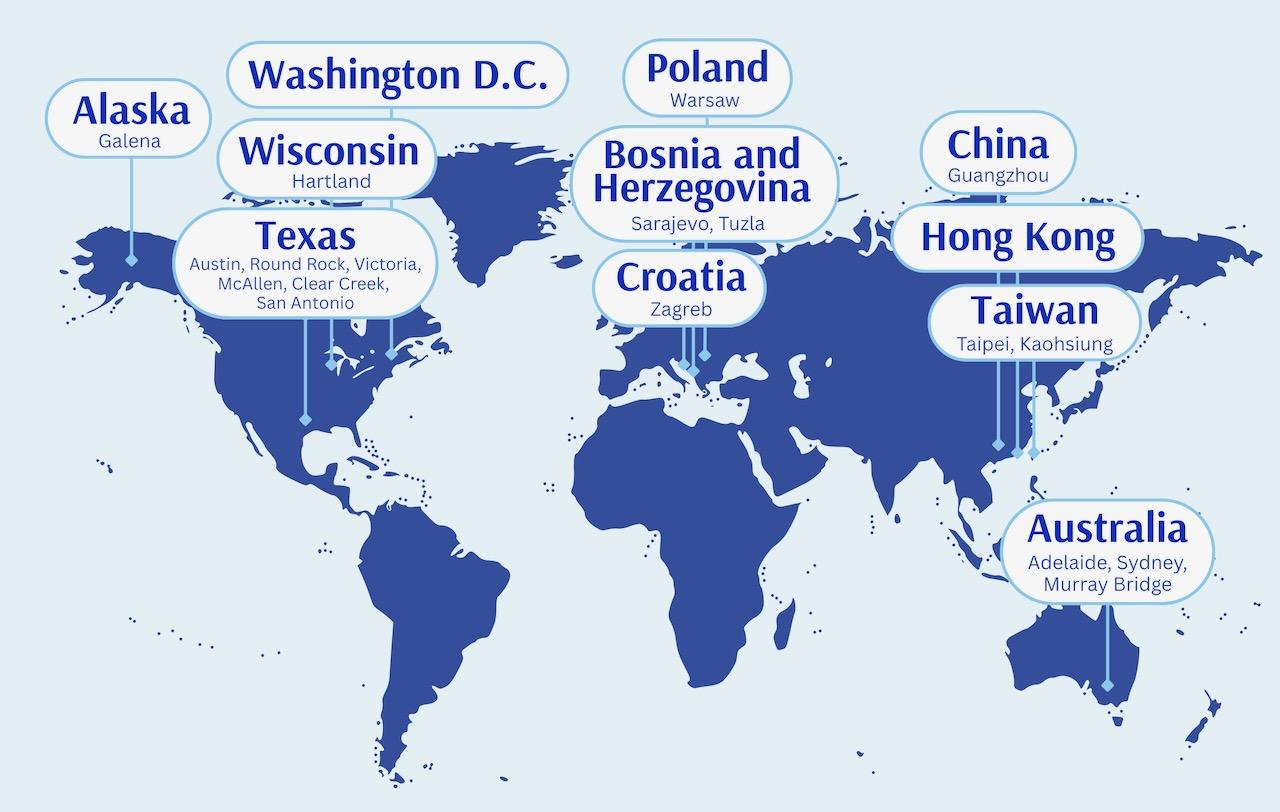Transforming Classrooms and Communities Across the Globe

Two decades ago, in a handful of Texas classrooms, something quietly powerful was happening. Teachers were experimenting with a simple but transformative idea: what if students could learn more deeply by stepping into the lesson—literally? Using storytelling, movement and role play, they brought academic concepts to life, sparking curiosity and connection without expensive technology or curriculum overhauls.
That early experiment became Drama for Schools, a program launched at The University of Texas at Austin that is now globally recognized for using arts-based strategies to engage students and transform teaching. It’s a flexible, research-driven framework that transcends subject areas, grade levels and cultures that’s been used by educators on five continents. Now, it’s the subject of a new book titled Drama for Schools and Beyond: Transformative Learning Through the Arts.

At the heart of both the program and the book is Katie Dawson, the program’s founder and an associate professor in UT’s Department of Theatre and Dance. "We write the books we need," Dawson said. "This one was about pausing to look back at 20 years of impact—locally, globally, and as a research contribution."
A recent example of that evolving impact is the Climate Justice with Youth Summer Institute, a collaboration supported by Planet Texas 2050. The six-month project brought together UT researchers, teachers and students at the Ann Richards School for Young Women Leaders to co-design and study a new climate resilience curriculum for 7th graders. Using inquiry-based practices grounded in theater, dance and visual arts, students explored environmental concepts across disciplines—combining STEM knowledge with creative thinking to imagine more just and sustainable futures.
With guidance from Drama for Schools, the team developed arts-integrated units that activated students’ relational understanding of local environmental challenges. Students used skills from math, science, language arts and leadership to deepen their engagement with topics like water systems and sustainability. The initiative culminated in a student-led “Action Through the Arts Festival,” where 7th graders performed and taught their creative research to 6th graders. Students and teachers analyzed data from the project and shared findings at the 2025 Planet Texas 2050 annual research symposium.
"Drama-based strategies significantly enhanced student learning," said Christina Alvarez Ortiz, interim principal at Ann Richards. "The initiative empowered teachers and student leaders, creating a dynamic and authentic learning environment."

The institute reflects how much Drama for Schools has grown over the past 20 years—not only as a teaching method but also as a tool for community-based participatory research. All participants were treated as co-researchers and co-designers, and local knowledge was central to the curriculum. This collaborative model aligns with Planet Texas 2050’s mission to support resilience through broad-reaching, interdisciplinary solutions to complex environmental challenges.
Backed by a team of experts who bridge education and theatre, Drama for Schools continues to expand. Dawson leads the program’s research and practice efforts alongside Lara Dossett, assistant professor of instruction in Theatre and Dance, and Stephanie Cawthon, professor of educational psychology and director of research and evaluation. Together, they train educators not just to use arts-based methods—but to become leaders who can train others, building long-term capacity within schools and communities.
Core strategies include visual art, role play, movement, and collaborative problem-solving, all designed to engage students intellectually, emotionally and physically. A lesson on ecosystems might involve students embodying different species in a food chain. A math unit could become a design challenge where students pitch playground proposals under budget constraints.
This adaptability has made Drama for Schools globally relevant. In Alaska, the team worked with the Koyukon Athabascan community to support culturally grounded education and healing after a youth suicide crisis. In Australia, they partnered with the University of South Australia and its Department for Education to incorporate drama into math instruction—especially in ways aligned with Aboriginal knowledge systems.
Dawson was also invited by the U.S. State Department to lead multi-year teacher training initiatives in Croatia, Bosnia and Herzegovina, and Poland—countries with complex histories of conflict. There, drama became a tool for intercultural dialogue and social cohesion.

"The Drama for Schools training program resonated particularly well in Bosnia and Herzegovina, where there is a strong demand among educators for more inquiry-based and student-centered teaching that fosters higher-level thinking skills," said Holly Zardus, cultural affairs officer with the U.S. Embassy in Sarajevo. "I saw this program transform them."
Beyond workshops and classrooms, Drama for Schools has built one of the most widely used educational resources from UT’s College of Fine Arts: an open-source website offering videos, lesson plans, and more than 100 strategies—visited by educators around the world since it launched in 2009.
The new book, Drama for Schools and Beyond, co-authored by Dawson, Dossett, Cawthon, and alumna Beth Link (now an assistant professor at The Ohio State University), brings together research, case studies and teacher voices. Part scholarly reflection, part practical guide, it offers a blueprint for using the arts to boost cognitive development, foster inclusion, and deepen engagement across academic subjects.
"I think the greatest impact of this work," said Dawson, "is that it reminds people—especially teachers—that they still have agency. That they can still imagine something better. And then, with the right tools, they can build it themselves."
Drama for Schools and Beyond: Transformative Learning Through the Arts will be published by The University of Chicago Press in September 2025.

